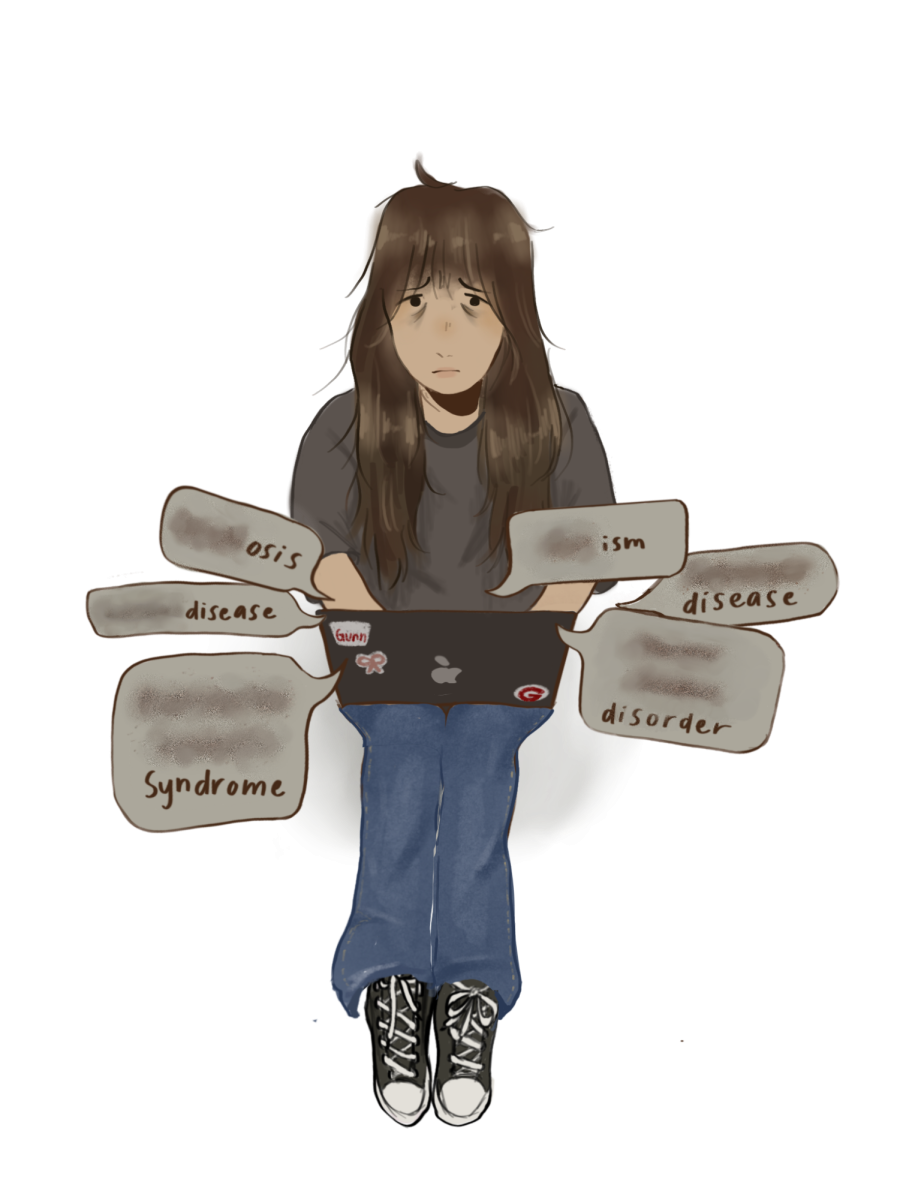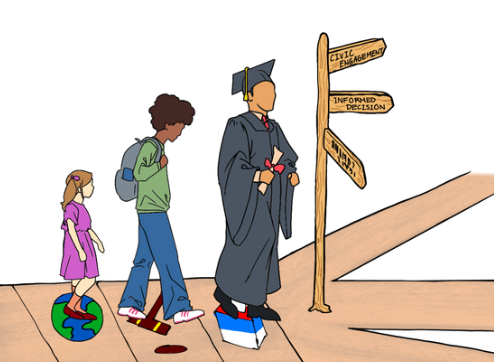Posted on February 3, 2017 in Forum
written by: Matthew Hamilton and Sohini Ashoke
In the days after President Trump announced his executive order banning people from seven predominantly Muslim countries from entering America, Lyft announced a donation of $1 million to the American Civil Liberties Union (ACLU) and Airbnb offered free housing to refugees that were stopped at airports with nowhere else to go. Palo Altans are unique in their privilege and in their intellectual vitality, but they are not following the example set by Lyft and Airbnb of putting those resources to use. Aside from an occasional Facebook post, Palo Altans are not doing enough to help those outside of Silicon Valley who are seeking refuge in areas like Palo Alto. Now more than ever, as executive actions signed by President Trump limit the flow of refugees into the United States, people in Palo Alto must utilize their ability to help those in desperate need of aid—specifically refugees of oppressive regimes or nations ravaged by war.
Palo Alto is a place of incredible wealth, which should be shared. Cities like Palo Alto have more than enough resources to meet the basic needs of their people. Access to health care, publicly-funded education, sound infrastructure and minimal violence are all things that Palo Altans enjoy every day. According to 2016 U.S. Census Bureau data, 97.4 percent of Palo Altans older than 25 have graduated high school, only four percent are without health insurance, the median household income is $136,519 and only five percent live in poverty. While Palo Altans are able to enjoy these luxuries, many of the people seeking refuge from countries like Syria and Iraq live in constant fear for their lives and without access to necessities like food, shelter and health care. Palo Altans need to put their resources toward helping those who are not as fortunate to live in peaceful and prosperous areas.
Despite all of the resources in Palo Alto, there has not been enough done to use them to help refugees. According to CBS Local, California resettled 1,454 Syrian refugees during 2016, but not one went to Palo Alto. Although the real estate prices of Palo Alto are high, neighboring communities Los Gatos and Walnut Creek were still able to settle seven and five refugees respectively. This lack of action is inexcusable considering the amount of wealth in Palo Alto.
Hosting a refugee is not the only course of action for those living in Palo Alto. Donating to a group like I AM YOU, which recently visited Palo Alto, can also help. I AM YOU is an organization that helps refugees in camps in Greece by setting up schools for children and adults, and providing health care to refugees. A donation to an organization like the International Rescue Committee (IRC) would also help refugees. In one year the IRC helped 18,151 refugees from East Asia resettle in the U.S. and 9,961 newly arrived refugees find resources in their new communities. A donation to the ACLU, the organization that initiated the court case that resulted in a stay on President Trump’s executive order, will ensure that the rights of refugees are protected. If finding a place to house a refugee is too difficult for Palo Altans, donating to these organizations can also help refugees.
Finally, supporting politicians who endorse legislation that allows refugees to come to the U.S. is a crucial way that Palo Altans can aid refugees. President Trump’s executive order titled “Protection Of The Nation From Foreign Terrorist Entry Into The United States” bans persons seeking refugee from Iran, Iraq, Syria, Sudan, Libya, Yemen and Somalia from entering the United States and puts in place an extreme vetting process that would make it more difficult to seek asylum in the U.S. To counter these actions, Palo Altans should explicitly support legislation that helps reverse this.
Beyond just voting for Democratic candidates, which Palo Alto already does, Palo Altans should contact their elected representatives to ensure that they support legislation like Cory Booker’s “Protect America’s Families Act” which will criminalize the creation of any sort of immigrant-based registry program that classifies people on the basis of their religion, race, age, gender, ethnicity, national origin, nationality or citizenship. Encouraging legislators to act through phone calls and letters only costs time, but shows elected representatives that their constituents want them to stand up for refugees and oppose executive orders or legislation that hurts refugees.
The arguments against admitting refugees are that they bring crime, but that accusation is overwhelmingly false. Many who argue against admitting refugees, including President Trump, have pointed to the influx of refugees to Germany and the supposed increase in crime that refugees brought as a reason why refugees should not be admitted to the U.S. Upon examining the crime data published by Germany’s Federal Criminal Police Agency, however, it becomes clear that the myth that refugees disproportionately commit crimes of any kind, including sexual assault, is false. Between 2014 and 2015 the number of refugees increased by 440 percent, but the number of crimes committed by refugees only increased 79 percent. Furthermore, only one percent of crimes committed by refugees were classified as sexual assaults. The narrative that refugees bring crime with them is false, and not even alternative facts can support it.
The final argument against admitting refugees is that they are a threat to national security. Like the argument that refugees bring crime, this is also completely false. An analysis of Department of Justice data by the Cato Institute reveals that since 1975, three Americans have died because of a terrorist attack carried out by a refugee. To contextualize this number, the chance of an American being killed in a terrorist attack carried out by a refugee is less than one out of 3.64 billion on average per year. The threat of a terrorist attack being carried out by a refugee is extraordinarily miniscule—nearly negligible when it comes to the bigger picture.
Ultimately, wealthy communities are morally obligated to provide aid to refugees because using available and ample resources to help people in crises is the right thing to do. Disregarding the struggles of others while Palo Altans relish in their privilege is selfish. If privileged citizens started to share the amount of resources in wealth bubbles with people who urgently need it, a lot more pain and suffering would be alleviated from the world.
—Ashoke, a sophomore, is a reporter and
Hamilton, a senior, is a Managing Editor.










